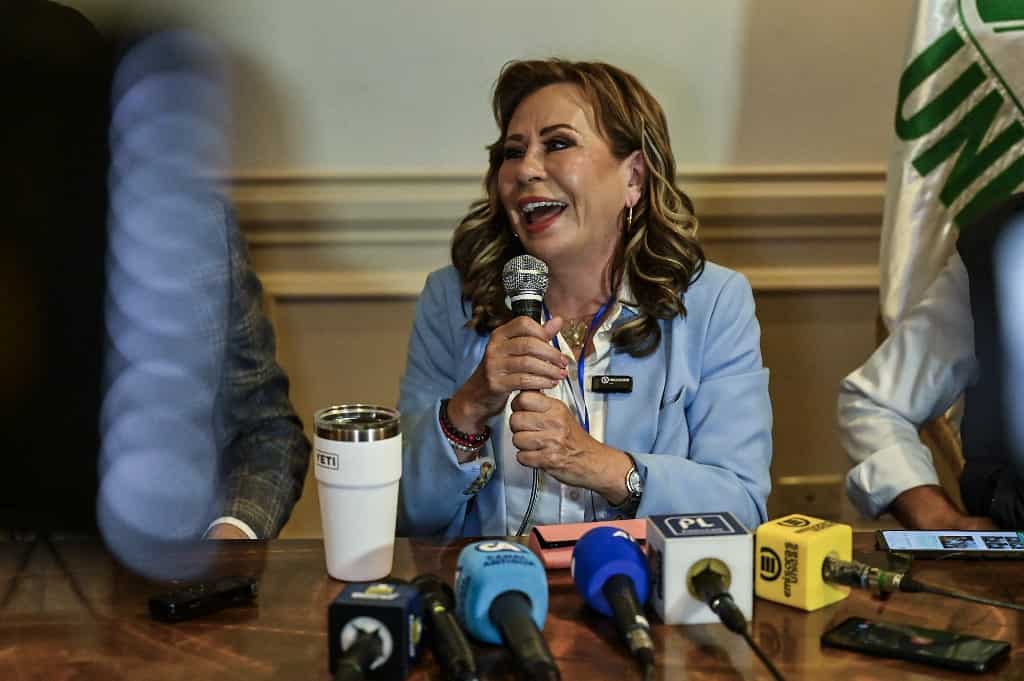Guatemalan presidential candidate Sandra Torres, representing the Social Democratic Party, demanded that the electoral authorities “officialize” the results of the first round of the June presidential election, whose deadline for challenges expires this Saturday, but her request was halted by a new legal action.
Torres stated in a press conference that, according to the deadlines set by the Constitutional Court, the Supreme Electoral Tribunal should officially announce the two parties advancing to the second round today. In the general elections held on June 25, Torres (15.86%) and Bernardo Arévalo (11.77%) received the highest number of votes among the 22 candidates. The presidential runoff will take place on August 20.
The results were reviewed in response to requests from several parties that alleged irregularities. Torres’ call was in response to a resolution by the Supreme Court of Justice, announced on Friday night, ordering the Supreme Electoral Tribunal not to officially announce the election results.
The resolution, signed solely by the Court’s president, Silvia Valdés, instructed the Tribunal to provide a report on the procedure it used to review the election results. The report was submitted by the Tribunal early on Saturday morning, but the Supreme Court must determine whether the review process was conducted correctly and in compliance with the Constitutional Court’s order.
Torres insisted that the Tribunal “should” make the results official, expressing concerns about the situation potentially “getting out of control due to the lack of trust in the process.” The recount of the electoral records was carried out after the Constitutional Court, the highest judicial body in Guatemala, provisionally accepted the amparo (legal protection) filed by nine right-wing parties that rejected the results announced by the Supreme Electoral Tribunal.
According to various sources, including several parties that requested the review, the recount results confirm Torres, the ex-wife of former President Álvaro Colom (2008-2012), and Arévalo, the son of reformist President Juan José Arévalo (1945-1951), in the first and second positions, respectively.
The Constitutional Court’s decision was criticized by the United States, the European Union (EU), the Organization of American States (OAS), Brazil, as well as local academic organizations, the Catholic Church, and human rights organizations.
Meanwhile, the Electoral Observation Mission of the Organization of American States (OAS) stated in a press release on Saturday that, after reviewing the election results, they could “verify” that there were no serious irregularities that could alter the outcome of the election. The OAS Mission stated, “The Mission verified that, after this process (the review), no significant irregularities were uncovered, and there were no significant changes from the preliminary results announced on Sunday, June 25.”
On the same day, supported by other social organizations, a thousand university students marched in the capital demanding respect for the results of the presidential elections.






